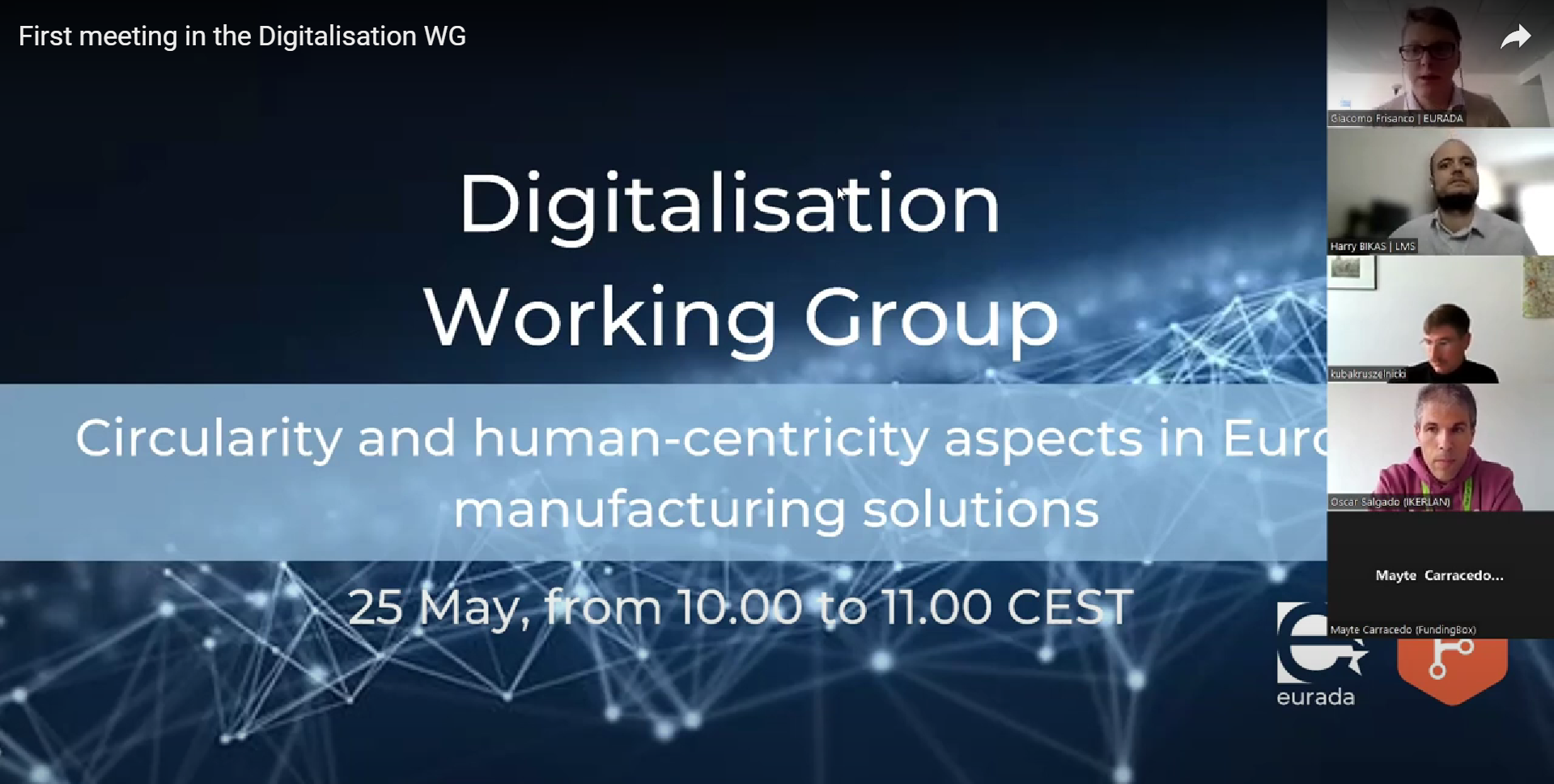The workshop aimed to discuss the latest trends in human-centred developments in the manufacturing industry and address the circularity in Industry 4.0 technologies. The event was organised by EURADA in partnership with FundingBox and aimed to reduce the skills barriers to using novel manufacturing solutions.
The workshop format consisted of a 60-minute open discussion with three speakers and one moderator, providing ample opportunity for participants to ask questions. The main objective was to strengthen the "Test Before Invest" approach to facilitate the adoption of new technologies by SMEs. This approach offers advantages by accelerating technology transfer to the market and enabling small-scale validations at the regional and local levels.
The event began with an introduction by the moderator, Kuba Kruszelnicki, from FundingBox. Kuba highlighted the importance of digitalization in the manufacturing industry, emphasizing that companies need to embrace digitalisation to remain competitive in the era of born-digital and born circular companies. He acknowledged the concerns about the human element in the face of increasing digitalisation but assured participants that the workshop would explore how to incorporate a human-centric approach in manufacturing solutions.
The first speaker, Harry Bikas, a research engineer from the University of Patras, presented his expertise in additive manufacturing and cluster processing. He discussed the challenges of achieving resilience and reconfigurability in production processes and how technology and interoperable platforms could enable resilience in manufacturing. Harry emphasized the target group for these developments, which included companies facing reconfiguration issues, scaling production, introducing new suppliers, and dealing with disruptions.
The second speaker, Pouria Sayyad Khodashenas, an expert at Huawei, a Green & Digital Transformation Specialist and the technical coordinator of the Zero Firm project, focused on the advancements in 5G mobile technologies and their application in smart manufacturing. He emphasized the need for technical feasibility and business viability in the development of solutions for 5G uptake in factories. Pouria highlighted that SMEs would play a crucial role in utilising these technologies to create new services and opportunities.
The final speaker, Oscar Salgado, an innovation expert and researcher from IKERLAN, shared his experience in mechanical engineering and discussed the importance of the energy transition and circularity in manufacturing. Oscar represented the Zero Defects project and emphasized their goal of improving resource efficiency and reducing waste in the manufacturing sector. He highlighted the need for sustainable practices and the impact of waste reduction on the global environment.
The discussion emphasized the importance of bridging the gap between humans and technology in the context of digitalisation. Humans are naturally curious but also skeptical of change and new technological developments. Lack of knowledge and skills further contribute to this gap. To address this, it is crucial to make new technologies more accessible and understandable to users. The focus should be on creating user-friendly and inclusive tools that are explainable and can be trusted. Educating people and raising awareness about technology is essential to overcome barriers to acceptance. The spread of fake news and misinformation also presents challenges that need to be tackled.
Furthermore, the workshop highlighted the need for a human-centric and inclusive approach to digitalisation, ensuring that everyone is on board during the transition. It also emphasized the concept of circularity, aiming to reduce waste and extend the life of products through reuse, recycling, and value preservation. The challenges related to waste in the industrial sector were discussed, and the importance of clean and waste-less production processes was emphasized.
The discussion also touched on the complexity of achieving waste reduction and the role of technology, data, and connectivity in monitoring and optimizing the entire product lifecycle. While there is optimism about achieving a waste-less future, it is acknowledged that it will take time and concerted efforts to remove waste from the vocabulary of industrial companies.
Throughout the workshop, the speakers stressed the importance of collaboration and knowledge sharing among European projects. They encouraged engagement from policymakers, SMEs, and other stakeholders to foster a deeper understanding of the challenges and opportunities in the manufacturing industry. The workshop aimed to provide a platform for inclusive discussions and to explore ways to integrate human-centric approaches into manufacturing solutions.
EURADA is pleased to have been able to benefit from the experiences and knowledge of the expert speakers who took part in this workshop. We hope to have the opportunity to meet all the participants in the next workshops organised for the Digitalisation Working Group.
